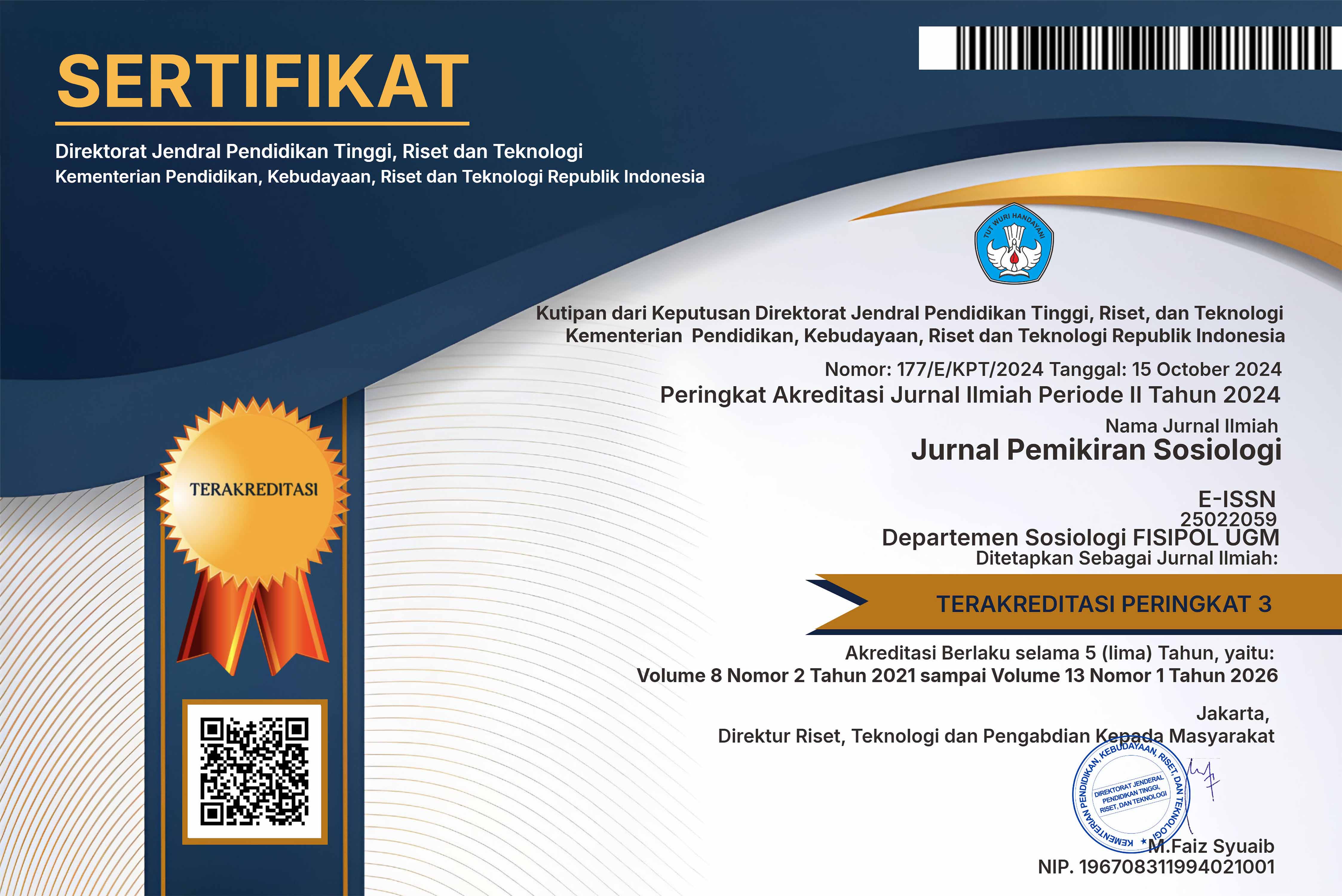Handling of Human Trafficking in the Modern Era in Indonesia
Difta Anggraeni Syawal Li Idul Fitri(1*), Salahuddin Salahuddin(2), Syamsulrizal Syamsulrizal(3), M. Syaprin Zahidi(4)
(1) Universitas Muhammadiyah Malang, Indonesia
(2) Universitas Muhammadiyah Malang, Indonesia
(3) Universitas Muhammadiyah Malang, Indonesia
(4) Universitas Muhammadiyah Malang, Indonesia
(*) Corresponding Author
Abstract
This article aims to analyze, namely by describing and participating in how to handle human traffic in the modern era that is happening today. The research method used in this research is a systematic literature review (SLR), where the articles are analyzed using 161 scientific articles sourced from previous articles. The purpose of this method is to look for a problem on the issue being studied. This study tries to examine a country's efforts to eradicate human trafficking. In this study, how to deal with trafficking cases that occur, because of the rise of developing technology, which has led to increasing cases of human trafficking. In the modern era, what can be done is to form a community or team to search for or monitor human trafficking activities on social media. In addition, the need for awareness of the surrounding environment also raises awareness of human trafficking. With collaborative efforts with NGO institutions such as the International Organization for Migration (IOM) we hope to minimize cases of human trafficking that occur in Indonesia.
Keywords
Full Text:
PDFReferences
Cockbain, E., dan K. Bowers. 2019. “Human Trafficking for Sex, Labour and Domestic Servitude: How Do Key Trafficking Types Compare and What Are Their Predictors?” Crime, Law and Social Change 72(1):9–34. doi: 10.1007/s10611-019-09836-7.
Davy, D. 2016. “Anti–Human Trafficking Interventions: How Do We Know If They Are Working?” American Journal of Evaluation 37(4):486–504. doi: 10.1177/1098214016630615.
Giddens, L., S. Petter, dan M. H. Fullilove. 2021. “Information Technology as a Resource to Counter Domestic Sex Trafficking in the United States.” Information Systems Journal. doi: 10.1111/isj.12339.
Johnson, B. C. 2020. “Featured Counter-Trafficking Program: Trauma Recovery for Victims of Sex Trafficking.” Child Abuse and Neglect 100. doi: 10.1016/j.chiabu.2019.104153.
Milivojevic, S., H. Moore, dan M. Segrave. 2020. “Freeing the Modern Slaves, One Click at a Time: Theorising Human Trafficking, Modern Slavery, and Technology.” Anti-Trafficking Review 14:16–32. doi: 10.14197/atr.201220142.
Obertová, Z., dan C. Cattaneo. 2018. “Child Trafficking and the European Migration Crisis: The Role of Forensic Practitioners.” Forensic Science International 282:46–59. doi: 10.1016/j.forsciint.2017.10.036.
Puspahapsari, Adiningrum. 2015. “Implementasi Counter-Trafficking International Organization for Migration (Iom) Dalam Menanggulangi Perdagangan Manusia Di Indonesia Tahun 2007-2013.” Journal of International Relations 1(3):18–24.
Snajdr, E. 2013. “Beneath the Master Narrative: Human Trafficking, Myths of Sexual Slavery and Ethnographic Realities.” Dialectical Anthropology 37(2):229–56. doi: 10.1007/s10624-013-9292-3.
Twis, M. K. 2020. “Risk Factor Patterns in Domestic Minor Sex Trafficking Relationships.” Journal of Human Trafficking 6(3):309–26. doi: 10.1080/23322705.2019.1627775.
Whaling, K. M., A. der Sarkissian, J. Sharkey, dan L. C. Akoni. 2020. “Featured Counter-Trafficking Program: Resiliency Interventions for Sexual Exploitation (RISE).” Child Abuse and Neglect 100. doi: 10.1016/j.chiabu.2019.104139.
Yagci Sokat, K. 2022. “Understanding the Role of Transportation in Combating Human Trafficking in California.” Transportation Research Interdisciplinary Perspectives 15. doi: 10.1016/j.trip.2022.100673.
Article Metrics
Refbacks
- There are currently no refbacks.
Copyright (c) 2023 Jurnal Pemikiran Sosiologi

This work is licensed under a Creative Commons Attribution-ShareAlike 4.0 International License.
Jurnal Pemikiran Sosiologi Indexed by:
ISSN 2252-570X (Print), ISSN 2502-2059 (online).

















